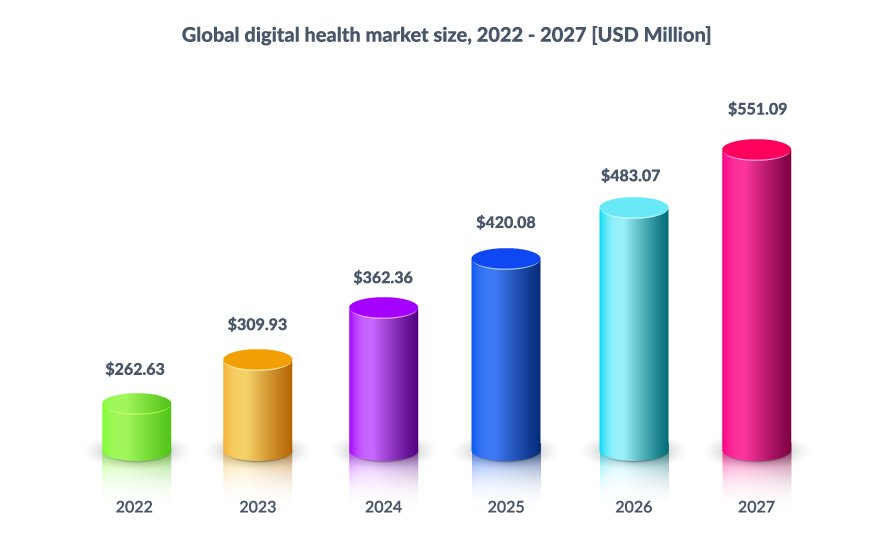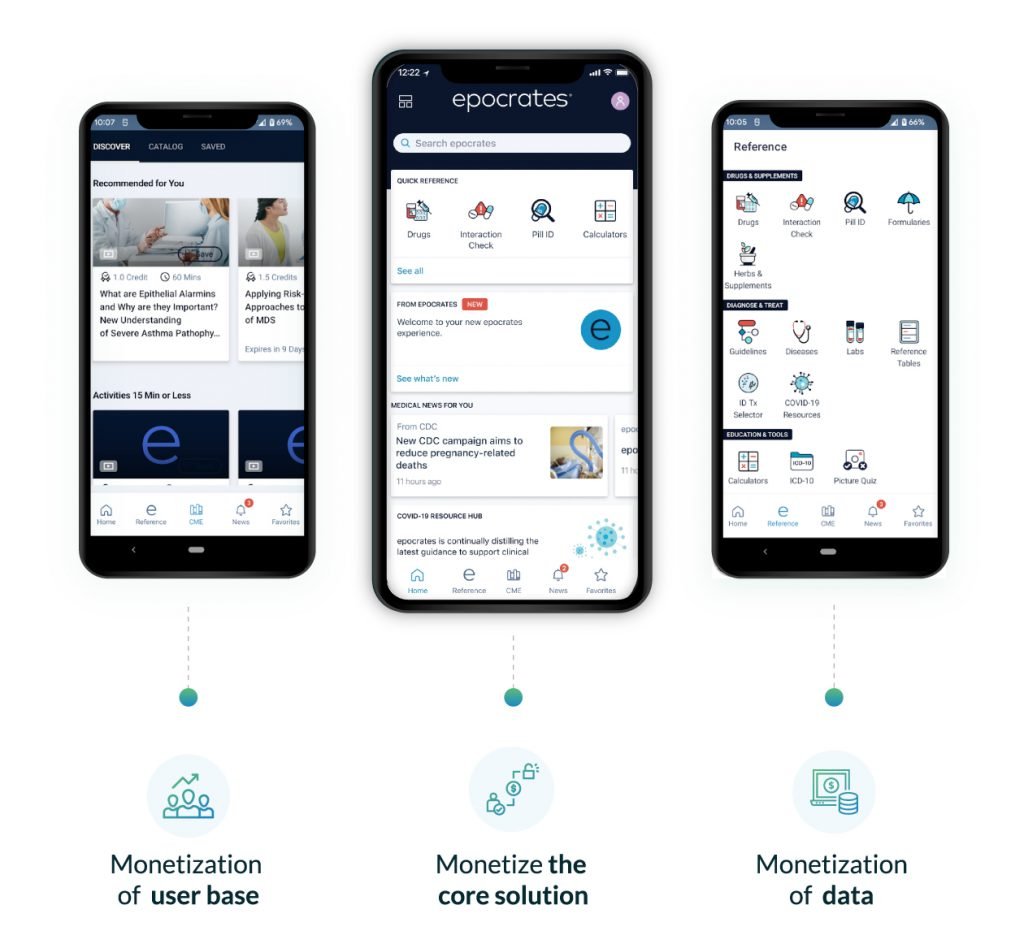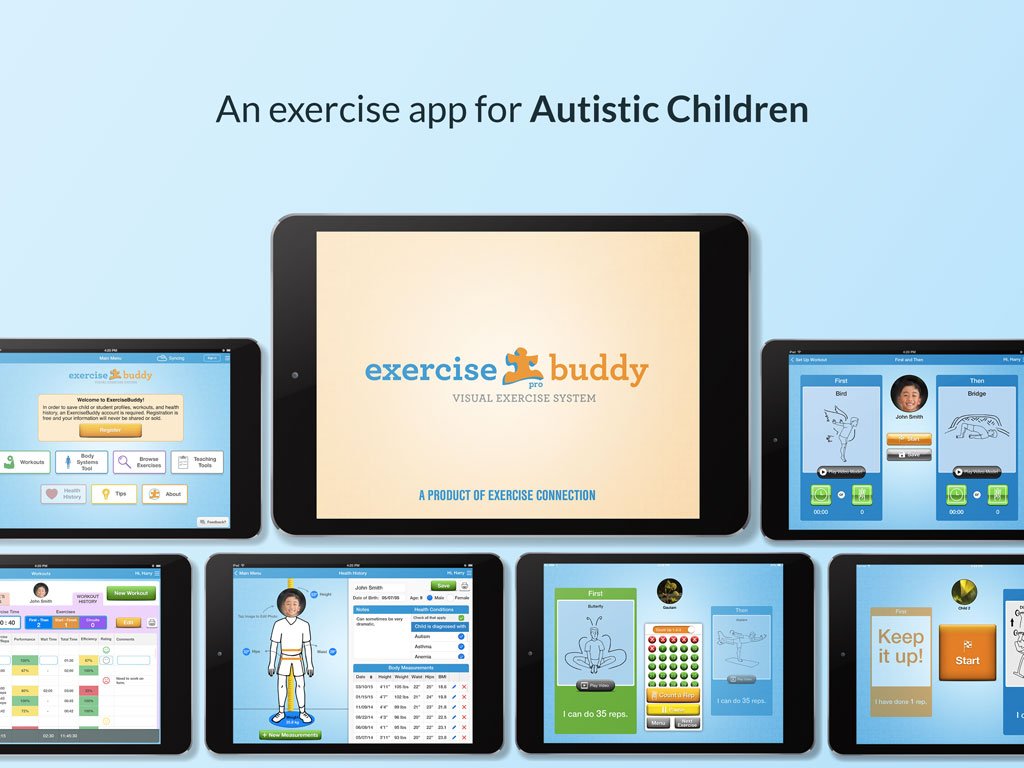Monetizing Your HealthTech App – The Right Way
Table of Contents
“If something can’t be monetized, it ain’t a business.”― Hendrith Vanlon Smith Jr, CEO of Mayflower-Plymouth
The global digital health market is thriving and is all set to prosper even more in the coming years. A study by Precedence Research estimates that the market size of digital health is likely to reach $551 billion by 2027, growing at a CAGR of nearly 16.5%.
Within the digital health space, mHealth apps further constitute a flourishing category in itself. From 2022 to 2023, for example, the market size of global mHealth apps grew at a CAGR of 25.3% from $45.31 billion to $56.77 billion.

These numbers indicate that an unprecedented opportunity is knocking at the doors of healthcare innovators–especially those in the space of healthcare technology, or HealthTech. If you own a HealthTech app (or are in the process of building one), and are looking for insights on how to monetize it successfully, then this blog is for you.
HealthTech product owners need to carefully define their target market and design a revenue model with a clear monetization strategy. Furthermore, the competitive landscape of your app and whether they are monetizing effectively will have a significant impact on the success of your app monetization. Selecting the best-fit product monetization strategy and executing it right can help HealthTech product owners come out of the red.
Let’s explore how to go about it.
Monetization Strategies for HealthTech Products
HealthTech Apps can be broadly monetized in 3 key ways:
- Monetization of the core solution that it provides.
- Monetization of the data it generates.
- Monetization of the user base it attracts.
Every app has a core problem that it solves. For example, Epocrates is a rising HealthTech app used by over 1 million healthcare providers. They use it to gain access to the most current information on safety, diagnostics, and treatment–right when they need it. Therefore, the core solution that Epocrates provides is informational value and time-savings for clinicians.

Now, Epocrates uses the freemium model to monetize the core solution. This means that it provides some of its content for free and the rest at a premium.
Instead of doing that, another possible way to earn from the app would be to sell the data it collected/generated from the app. That scenario would be an example of the monetization of data.
Such data could include the demographics of the clinicians and their usage data from the app, for example. Needless to say, the collection and monetization of any data would require abiding by data privacy regulations.
Interestingly, Epocrates also has a third option. It can monetize its app’s ever-growing user base by allowing third-party organizations to run ads on its app. The app already attracts over 1 million clinicians, which might be an enticing advertising opportunity for medical device companies and pharma companies to promote their products and services on the app. In that case, it would be considered as monetization of the user base.
3 Key Factors to Consider When Monetizing Your HealthTech App
We at Digicorp have developed a number of successful HealthTech products from the ground up. This has given us the front-row seat to app monetization for many HealthTech products. From those experiences, we have identified the following 3 critical factors that impact your monetization the most.
#1 Choose a monetization strategy based on what differentiates your app.
Every app delivers a core solution, every app generates some data, and every app has its own user base. But whether you choose to monetize your app’s core solution, data, or user base, will become the game-changer for your app’s revenue-earning potential.
Let’s take the example of personal well-being apps. Some examples include calorie counters, exercise apps, sleep monitoring apps, and emotional health management apps. But the market today is crowded with them.
Hence, if you launch a new calorie management app tomorrow, you will probably be offering calorie-counting features that are similar to other apps. Also, most calorie-counting apps are free to use, so monetizing your core solution might not make sense. But if your app can measure rich user data which might be useful for wellness brands, then consider monetizing your data instead.
Aggregated data from HealthTech apps that have been anonymized (i.e. all information of individual identity is removed) is of great value to researchers, pharmaceutical companies, wellness centers, and insurance companies.
You can approach them with your offer and see if there are any takers. Learn more about monetizing data from your HealthTech App from our blog.
#2 Choosing the Right Paying User Can Make or Break Your Monetization Strategy.
We at Digicorp built a HealthTech product sometime back which served as an exercise app for autistic children. It was meticulously designed to enable better fitness and behavior among children with special needs.
The product owner was initially targeting the parents of autistic children. But after some time, he began to wonder whether the right paying customers for him would be the various institutions associated with autism.

To identify the right paying user, study the size and engagement level of the app’s user base. Then, create a map of how different user groups interact with your app. This will put you in a better place to identify the ones that can be your potential paying users.
Moreover, researching the monetization strategies of your competitors and their efficiency will give you additional insights. The paying users that will best fit your monetization model will depend on factors like willingness to pay, their alignment with app features, and the pricing strategies of similar apps in the market.
Finally, app stores have their own policies and guidelines for monetization. It is crucial to understand and comply with these policies while choosing the paying users for your HealthTech app.
In reality, identifying the right paying customer is a trial-and-error process. But until you see the perfect fit, don’t give up on experimenting–since it is a critical step in the monetization journey.
#3 Keep monetization as one of your end goals right from the start.
Many app owners start thinking about monetization too late in the app development journey–which is a major mistake. Get a fair idea of how you are going to monetize your HealthTech app in the future and who is going to pay for it.
Doing so will inform the entire development process right from the features to the UI-UX design. The end result will be an app that is more in sync with your market and ready to earn revenue from early on.
Know more about us here, or write to us at sales@digi-corp.com to boost your journey of product innovation!
Nachiket Patel
Co-Founder, VP (DIGICORP)
Nachiket Patel
- Posted on April 11, 2023
Table of Contents


